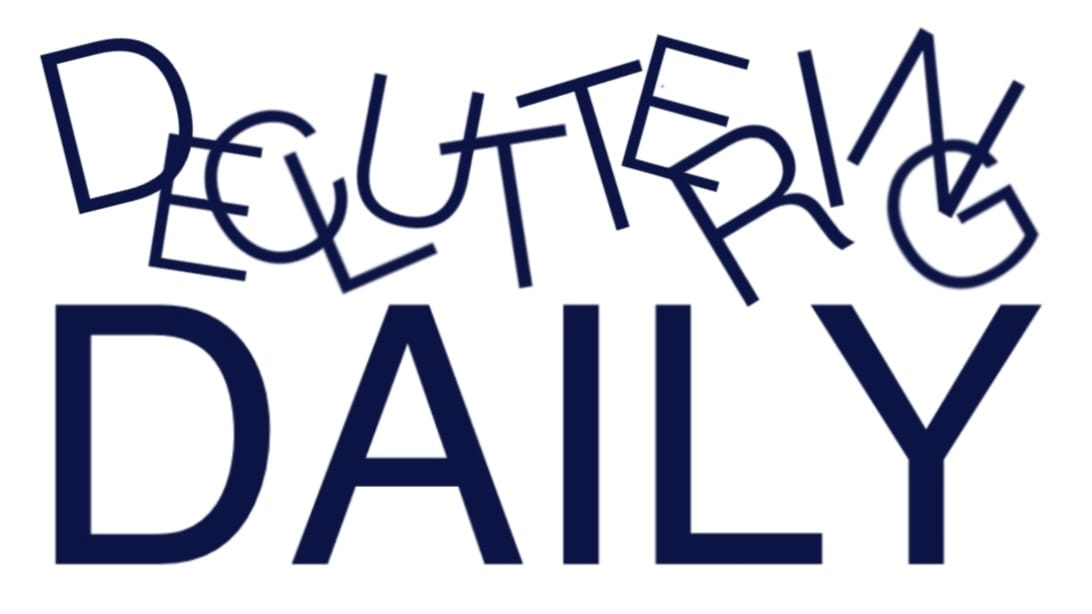- Decluttering Daily (retired)
- Posts
- Community Minimalism
Community Minimalism

A few weeks ago, I put a chair on the curb. Still in great shape. Just no longer needed. An hour later, it was gone. Someone got a seat. I got some space. That’s the magic of letting go and letting it be useful. In fact, the end of my driveway has been used for lots of things like this. Everything always goes. Whether someone is collecting it to use in their home, or try to sell, or to give it to someone else, it’s always going to someone else that values it more. And that’s the point of today’s email. Learning to contribute to, and to leverage, your community. Speaking of sharing. If you find value in this, please share it with someone you care about by clicking the logo above! |  |
Simple & Sustainable
We usually think of minimalism as something personal. Clearing out closets. Letting go of what no longer fits.
But when we zoom out, we start to see that simplifying your life can actually strengthen your community too.
Every time we donate, share, or borrow, we extend the life of something that might have ended up in a landfill. Studies have shown that sharing programs like tool libraries and bike sharing reduce waste and lower carbon emissions. One article even found that extending the life of a piece of clothing by nine months reduces its footprint by twenty percent. That means when you hand down a jacket or share your lawnmower, you’re not just helping someone else. You’re helping the planet too.
Minimalism can also make us feel more connected. Sharing and donating give us more than just space on a shelf. They create moments of kindness. Real human connection. Research shows that people who practice voluntary simplicity often report less stress and more satisfaction with life. One study found that members of sharing communities feel more pride and connection in their neighborhoods. Even small actions, like lending a tool or participating in a local swap, can build trust and strengthen relationships. And those relationships are what create the kind of community we all want to live in.
And here’s the bonus. Community minimalism is not just good for your heart or the planet. It is smart for your wallet too. Borrowing instead of buying helps cut back on unnecessary spending. Sharing a car or tools means you save on maintenance, storage, and replacements. One study showed that over eighty percent of item-sharing members saved money. At a bigger level, communities that embrace this way of living support local repair shops, secondhand stores, and reuse networks. These systems help keep money circulating locally instead of flowing out to big box stores or factories overseas. When we give more and need less, we become more resilient too. We rely less on fragile supply chains and more on each other. And that is a powerful shift.

Daily Doables
Here are seven simple, doable ideas to try out this week. If you’d like a more detailed, printable version, just let me know!
Mon: Loan something useful to a neighbor or friend.
Tue: Fill one bag with items to donate.
Wed: Support a local school, shelter, or library.
Thu: Post one free item online to give away.
Fri: Visit or promote a local co-op or lending space.
Sat: Deliver donations where they’ll be most needed.
Sun: Host or join a simple swap with friends or neighbors.
Let me know what you tried!
Parting Point
You don’t have to own everything to have everything you need. When we share, we waste less, connect more, and build something better together.
Next week, we’ll explore Packing Light. See you then!
Yours in Simplicity,

References
Bocken, N., et al. (2019). Nature Communications. Sharing economy and environmental benefits.
Johnson, K. L., et al. (2021). Journal of Positive Psychology. Voluntary simplicity and well-being.
WRAP (UK Waste & Resources Action Programme). Clothing longevity impact study.
Library of Things impact report (2022).
Freecycle Network global landfill diversion.
Ellen MacArthur Foundation. Circular Economy and Resilience.

Reply